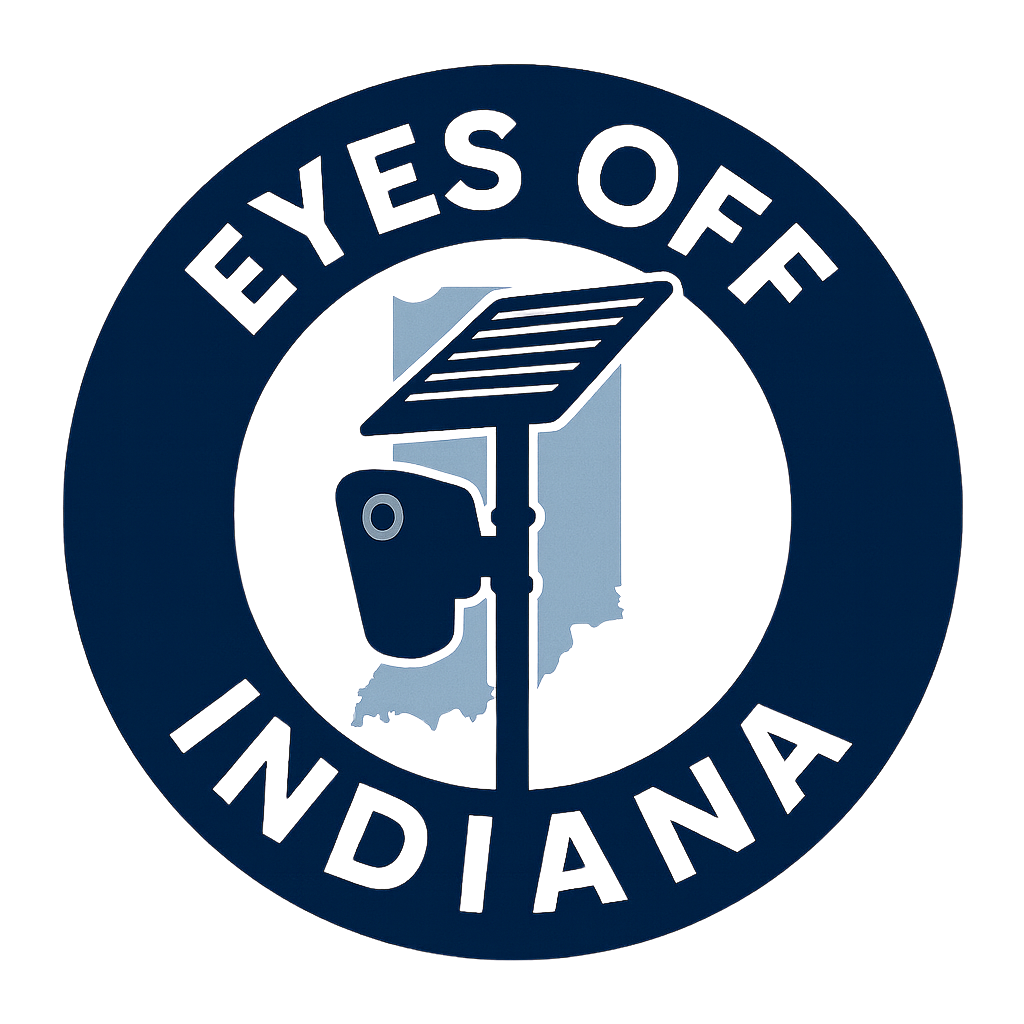A National ALPR Story With Direct Implications for Indiana
The Associated Press recently published an investigative report titled “Border Patrol is monitoring US drivers and detaining those with ‘suspicious’ travel patterns.” The findings show how automatic license plate reader (ALPR) systems, once limited to border enforcement, now form a broad domestic surveillance network.
This system affects drivers far from the border, including on routes toward Chicago and northern Indiana. The investigation underscores why Indiana must adopt clear ALPR standards instead of relying on a patchwork of local policies.
How the Program Works: Suspicious Patterns and Hidden Tipoffs
According to the AP, Border Patrol uses nationwide ALPR data to:
- Scan and store millions of plates from fixed and covert cameras,
- Feed that data into algorithms that search for “abnormal” routes,
- Flag vehicles for further review based on simple travel behavior,
- Pass silent tipoffs to local police, who then initiate ordinary traffic stops.
These tipoffs, often called “whisper stops,” hide the true origin of the suspicion. Drivers are pulled over for minor violations, questioned, and sometimes searched without knowing that a federal ALPR system triggered the encounter.
From Border Checkpoints to Interior Surveillance
The AP found that the program has expanded significantly:
- Cameras are now placed far inside the interior, including near the Michigan–Indiana border,
- Border Patrol accesses ALPR data from the DEA, local police, and private vendors such as Flock Safety and Rekor,
- Analysts use long-term records to build “patterns of life” and identify trips that appear unusual.
This transforms routine driving into a data trail that can be reviewed at any time, even when no crime is suspected.
Real Drivers, Real Consequences
Several cases described by the AP show how ordinary drivers are swept into this system:
- A Texas delivery driver was stopped after an ALPR alert about his route. He was arrested on suspicion of money laundering even though no contraband was found. The case was later dropped.
- A Houston-area professional was detained and searched after Border Patrol reviewed his overnight work trip. Nothing illegal was discovered.
These stops occurred not because officers observed criminal behavior, but because a travel pattern triggered an automated alert.
Why This Matters in Indiana
Indiana has no statewide law regulating ALPRs. Local agencies can:
- Use ALPRs without minimum policy requirements,
- Retain data indefinitely,
- Share information with federal agencies without clear limits,
- Operate without mandatory transparency or audit logs.
The AP investigation shows how unregulated ALPR networks can expand quietly. Without statewide rules, Indiana drivers can end up in national systems with little public oversight.
The Takeaway for Hoosiers
The AP investigation shows how ALPR networks can expand into large-scale tracking systems without public debate. Indiana can avoid this outcome by setting clear limits now.
Hoosiers should not be monitored through national databases simply for driving their normal routes.
How You Can Help
- Sign the petition for statewide ALPR standards: eyesoffindiana.org/petition
- Contact your legislators to support retention limits, transparency, and sharing limitations.
- Share the AP story and help raise awareness.
ALPR technology is here to stay. Indiana’s laws should make sure it is used responsibly and with public oversight.
